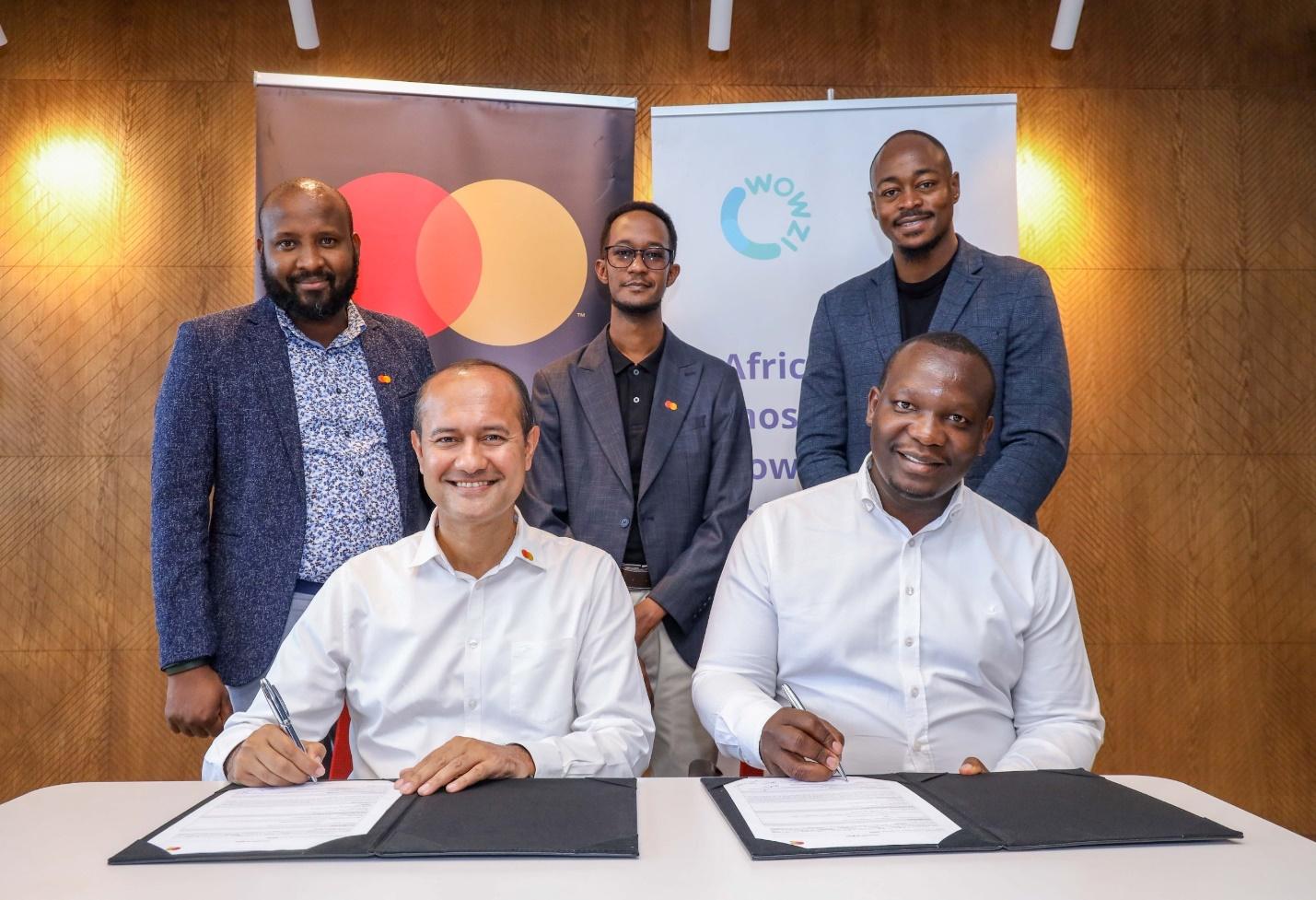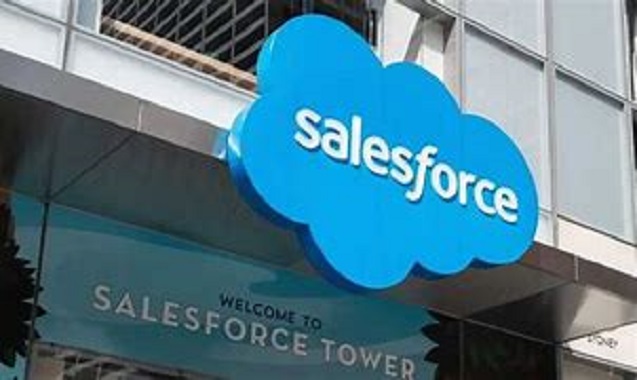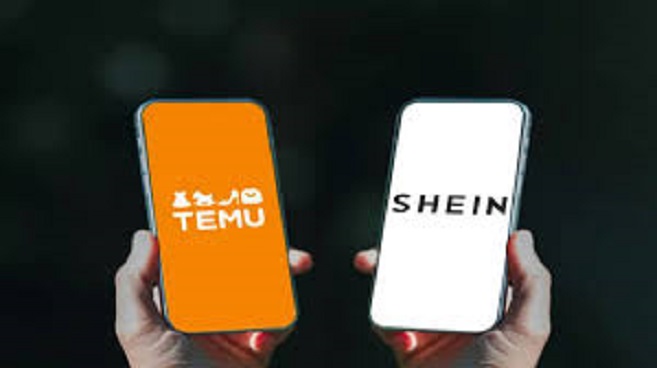Telecom
Mastercard Partners Wowzi and MDP to Transform Financial Management for Content Creators with $2.04 Million Investment

Mastercard has announced a groundbreaking $2.04 million investment in partnership with Wowzi, Africa’s premier influencer marketing platform, and Masria Digital Payments (MDP). This collaboration aims to transform the financial management landscape for content creators through innovative digital card solutions.

L-R Back): Dickson Chemjor, Digital Lead for East & West Africa, Mastercard; Andrew Letting, Manager, Product Sales, Mastercard; and Brian Mogeni, Co-Founder, Wowzi. (L-R Front): Shehryar Ali, Senior Vice President and Country Manager for East Africa & Indian Ocean Islands, Mastercard; and Mike Otieno, Co-Founder, Wowzi. The executives signed an agreement between Mastercard and Wowzi that will provide content creators with innovative digital card solutions
The five-year initiative will provide Wowzi’s content creators access to a range of digital card benefits. Leveraging MDP’s expertise in digital payments, these cards are designed to offer content creators a seamless and secure user experience, simplifying both online and offline transactions.
“Our journey has always been driven by the belief that content creators are the heartbeat of the digital age. This strategic partnership with Mastercard and MDP represents a pivotal moment in our mission to empower these creators.
“Innovation is at the core of our values, and we recognize that the influencer and creator market is underserved when it comes to payment solutions.
“We are dedicated to being at the forefront of technology solutions that cater to the unique needs of content creators.
“This collaboration allows us to not only address those needs but to set new standards in financial empowerment, security, and convenience for our valued community,” said Mike Otieno, Co-Founder and President of Wowzi.
These innovative digital cards will revolutionize the way content creators manage their finances. Content creators will now receive payments from brands, fans, or sponsors, directly onto their digital cards.
This will facilitate a secure and convenient financial management process, streamlining both online and in-store transactions while granting content creators’ access to exclusive Mastercard rewards and benefits.
“Our decision to invest in the influencer and content creation space is a testament to our belief in the transformative power of the gig economy.
“As the world of work continues to evolve, we are inspired by the incredible impact content creators have on global culture and the economy.
“Our objective is to empower these digital trailblazers with the financial tools and security they need to thrive in the dynamic payments landscape.
“This investment aligns with our vision to promote financial inclusion and drive innovation in an ever-evolving digital economy,” said Shehryar Ali, Senior Vice President and Country Manager for East Africa and Indian Ocean Islands at Mastercard.
This partnership introduces a range of unique digital card features like Watch Cards and Ring Cards. These wearable contactless payment solutions offer content creators a blend of convenience, security, and style.
“In a rapidly evolving digital landscape, it’s clear that the future of finance is intertwined with the influencer space. As pioneers in the issuing and processing industry, we understand the importance of security and innovation.
“This collaboration with Wowzi and Mastercard signifies our commitment to shaping the financial future for content creators, empowering them with more than just payments, it will be a secure and seamless experience,” our tagline Hello Africa, speaks to our mantra of listening to Africa and with that we walk with our customers into the future.
“We look forward to growing with Wowzi to create a sticky ecosystem for their end users beyond just cards (Physical and Virtual),” said Frank Molla, Managing Director at MDP Africa.
As the content creation industry grows, so does the need for efficient, secure, and flexible payment solutions that keep pace with the dynamic nature of digital content creation. This partnership represents a significant leap forward in meeting these needs, fostering a more vibrant and sustainable ecosystem for content creators worldwide.
Telecom
MTN Nigeria Takes Broadband Services to the Next Level with FibreX Launch

MTN Nigeria has proudly announced the rebranding of its fibre broadband service to FibreX, marking a significant stride in delivering next-generation internet solutions across the nation.

Formerly called MTN Fibre Broadband, FibreX embodies the company’s commitment to providing ultra-fast, reliable, and accessible internet services, aligning seamlessly with Nigeria’s National Broadband Plan (NBP) 2020–2025.
The NBP aims to achieve 70% broadband penetration by 2025, ensuring minimum speeds of 25 Mbps in urban areas and 10 Mbps in rural regions.
“The launch of FibreX reiterates our dedication to supporting Nigeria’s digital transformation journey,” said Egerton Idehen, Chief Broadband Officer, MTN Nigeria. “By enhancing our infrastructure and services, we aim to bridge the digital divide and foster inclusive growth.”
FibreX is set to play a pivotal role in the Federal Government’s initiative to expand the nation’s fibre-optic network by an additional 90,000 kilometers, aiming to increase fibre capacity from 35,000 km to 125,000 km.
FibreX promises ultra-fast and reliable internet connectivity, aiming to meet the diverse needs of Nigerians, from bustling urban centres to remote rural areas.
While the service itself retains its powerful FTTH (fibre to the home) infrastructure, the new name embodies a more modern, relatable, and emotionally resonant brand that is positioned to lead the conversation around what premium internet should feel like.
The new name, FibreX, was adopted to create a more customer-friendly brand. The goal is to educate and excite consumers within home-passed locations (the potential number of premises within a service area that can be connected to an FTTH network) about the benefits of the product.
As Nigeria strides towards a digitally inclusive future, initiatives like FibreX are crucial in bridging the digital divide and fostering nationwide connectivity.
For more information about FibreX and its offerings, please visit www.mtn.ng/fibrex.
Telecom
Salesforce Revolutionizes Business Intelligence with AI-Powered Tableau Next


Organisations today face a data paradox: they need to make fast, intelligent decisions but are overwhelmed by large volumes of often unreliable information. With over 75% of business leaders under pressure to prove data’s value, the demand for trusted, actionable insights has never been greater.
What is agentic analytics
Agentic analytics allows users to collaborate with AI agents to speed up the entire data-to-action process. Instead of relying on static visualizations, analysts can use AI to automate tasks like data preparation and ETL (extract, transform, load processes), freeing them to focus on deeper analysis. Business leaders can ask natural language questions and get instant, reliable answers along with recommended actions. This makes data-driven decision-making easier and more efficient, removing the need for technical expertise and manual effort typical of traditional BI tools.
- Automate repetitive data tasks like data cleaning, transformation, and visualization generation, as well as the execution of complex, multi-step analytical workflows within and across different business areas. This builds on Tableau’s strength in simplifying complex data for users.
- Proactively deliver faster, more comprehensive insights by autonomously detecting hidden correlations, outliers, and trends that might be missed by human observation. This enhances Tableau’s focus on user-driven insights by providing AI guidance.
- Enable more contextual and effective action through natural language summaries, visualisations, and data-driven recommendations, insights delivered where people work with an enterprise-class workflow engine that enables users to kick off automated actions. This extends Tableau’s ability to drive action from data, making it more seamless within the Salesforce ecosystem.
Built on the trusted Salesforce Platform and leveraging the power of Data Cloud, Tableau Next delivers enterprise-grade performance, robust security, and flexible, zero-copy data integration for seamless data connectivity. Tableau Semantics, an intelligent semantic layer, provides a unified understanding of information, ensuring data consistency and accelerating the discovery of critical insights. The built-in workflow engine in Tableau Next seamlessly translates insights directly into actionable steps, dramatically accelerating the time to value. The key differentiator is the native integration with Agentforce, Tableau Next equips humans and AI agents with pre-built analytical skills to rapidly transform data into tangible business value, marking a significant leap forward in data-driven decision-making. It includes:
- Data Pro: Your Intelligent Data Prep Assistant. Instead of users manually cleaning up and changing data using complex steps (like in traditional ETL), Data Pro will give smart suggestions on how to do it and even automatically handle some of the complicated changes, saving time and effort.
- Concierge: Instant Answers in Plain Language. Get immediate, reliable answers to data questions. Sales teams, for example, can simply ask “What are my best sales opportunities?” and receive clear insights with recommended actions.
- Inspector: Proactive Data Monitoring & Insights. Continuously tracks your data for key changes, analyzes trends, and predicts improvements. Service teams can be instantly alerted to drops in customer satisfaction, enabling immediate action.
Ensuring Data Trust and Accuracy:
- Tableau Semantics: Tableau Semantics serves as the semantic layer, providing Tableau Next and Agentforce with a unified understanding of business data. By establishing consistent definitions and context, it enables AI agents to generate accurate and relevant responses.
Boosting Efficiency:
- Marketplace: Allows users to easily share and reuse data analysis components (like data assets, connections, metrics, visualizations, dashboards), saving time and ensuring everyone is working with the same information.
“Tableau Next helps businesses achieve faster, more impactful results with their data,” said Ryan Aytay, CEO of Tableau. “We’re shifting from basic reports to a world where AI is a collaborative decision-making partner. By combining AI agents with trusted data and easy-to-use tools, we’re making data accessible to everyone and transforming the data-to-action process into an automated, proactive, and insight-driven cycle. This empowers users to improve decision-making, boost efficiency, and manage risk more effectively.”
Telecom
Temu and Shein Raise U.S. Prices Amid Trump-Era Tariffs

Chinese-founded e-commerce platforms Temu and Shein have announced upcoming price increases for U.S. customers, citing higher operating expenses due to tariffs imposed during former President Donald Trump’s administration.

These tariffs include a 145% import tax on most goods made in China and the elimination of the “de minimis provision,” which previously allowed goods valued under $800 to enter the U.S. duty-free.
The changes, effective May 2, have disrupted the business models of both companies, known for their ultra-low prices and extensive digital marketing campaigns.
Temu and Shein, which specialize in affordable products ranging from clothing to electronics, have urged customers to shop before the price adjustments take effect.
The companies aim to minimize the impact on consumers while adapting to the new trade rules.
These developments come amid concerns from U.S. lawmakers and business groups about the competitive advantage of inexpensive Chinese goods and the potential entry of counterfeit products through the now-canceled exemption.

 Telecom3 days ago
Telecom3 days agoSalesforce Revolutionizes Business Intelligence with AI-Powered Tableau Next

 Broadcasting3 days ago
Broadcasting3 days agoMultiChoice Brings Easter Home with Dedicated Pop-Up Channel

 News3 days ago
News3 days agoAirtel Smartcash Set to Power Stress-Free Easter with Seamless Cashflow

 E-Business3 days ago
E-Business3 days agoDG NITDA Tasks Africa to Lead the AI Revolution Through Strategic Leadership, Inclusive Innovation

 Telecom22 hours ago
Telecom22 hours agoMTN Nigeria Takes Broadband Services to the Next Level with FibreX Launch

 E-Financial3 days ago
E-Financial3 days agoHow CBEX Operators ‘Enticed’ Victims –SEC

 E-Business3 days ago
E-Business3 days agoGoogle Blocks 5.1Bn Harmful Ads in 2024, Suspends 39m Accounts

 Broadcasting3 days ago
Broadcasting3 days agoEedris Abdulkareem Teases New Protest Anthem following NBC Ban
























